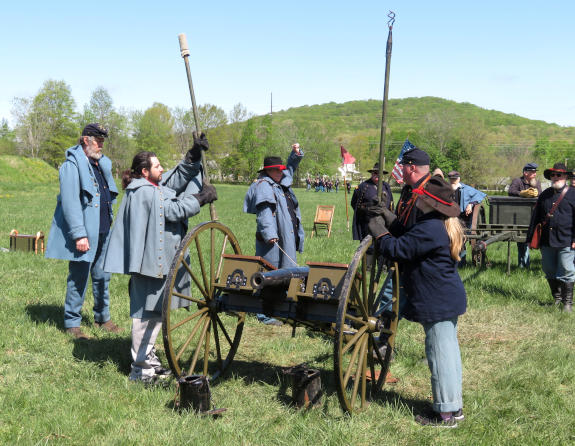NEWS OF 150 YEARS AGO
July/August 1860
From The Missouri Democrat, Monday, July 2, 1860.
The Civil War in Missouri—Reported Defection of Jackson and Reynolds.
The latest bulletins from the seat of war, are unfavorable to the Southern States-Rights Democracy. The special messenger dispatched by the Breckenridge men of this city, to Major Jackson, has returned, bringing with him an unsatisfactory answer. Claib asked time to consider. Now, the politician who hesitates, like the woman who listens, is lost; and Claib’s response, taken in connection with the dispatch in the Republican, stating that he and Reynolds had made up their minds to declare for Douglas, creates the presumption that they have deserted or will desert their colors. In that event Judge Bowlin will be nominated as the Breckinridge candidate for Governor, and Burns of Platte, brother of the United States Attorney here, the candidate for Lieutenant Governor. They will proceed to stump the State, we are told, as soon as nominated, with the determination to dispute every inch of ground with their squatter sovereign competitors—apostates from the doctrines proclaimed by the Convention which nominated them. Great hopes are entertained of the result of Bowlin’s canvass. He is to be accompanied by a staff of accomplished reporters, who will do him the same service that Voltaire rendered Frederick the Great. The calculation is that he will beat Jackson three to one. This estimate is partly based on the fact that no less than twenty Democratic papers have hoisted the Southern States Rights ticket—Breckinridge and Lane.
Nevertheless, the defection of Jackson and Reynolds is well calculated to revive the sinking hopes of the Douglas men, and restore the desperate fortunes of the battle. People will begin to think that the result is again involved in doubt. But the defection of Domouries did not destroy the French Republic, and the similar treachery of Jackson will not imperil the fate of the party which he has betrayed. Still, if the Breckinridge men would neutralize the mischief, no time must be lost. The enemy is in the field, going from county to county by forced marches, and doubtless demoralizing the Democratic masses as he goes. It is essential that his spurious character should be made known at the earliest moment. Jackson and Reynolds should be stript of their credentials in the face of the people. The writ of attainder proclaiming their treason should be issued at once. The party ensign, which they are prostituting to the service of their rebel chief, Douglas, should be snatched out of their hands without a moment’s delay. Time is precious. Commissioner Bowlin, renowned for his diplomatic exploits, should gird up his loins for a mission very different from the one to Paraguay, and exclaim with Richard when messenger after messenger came with tidings of rebellion and invasion, “Now firy [sic] expedition by my wing.” Let him bowl in among the traitors, and knock them right and left like so many ninepins.
If the Republican is to be believed, Phelps has not yet taken the counter jump to Breckinridge. If the Bulletin is to be believed he has. Green will settle the point on Tuesday night. Phelps went off at half-cock, but the Breckinridge men claim that he is all right now, and public assurances to that effect will be given by Green. Probably he is shivering in the wind, but we are greatly mistaken if he will not be yet found on the same side with the Administration. This will give rise to a very interesting political situation in the event of the Presidential election devolving on the House. Missouri has seven Representatives; three of them—Noel, Craig, and Clark—are pledged to Douglas, and three of them—Woodson, Anderson, and Phelps—(assuming that our hypothesis about Phelps is correct) are for Breckinridge. The casting vote will, therefore, be given by the Representative from this district; and hence it becomes essential to know in advance for whom he will vote. Blair, we venture to say, would vote for Douglas under no possible combination of circumstances. The question is how would Barret vote if he should be elected? We commend this consideration to the Breckinridge men. Suppose, after all, the vote of Missouri should be given to Douglas through the instrumentality of the Breckinridge men of St. Louis! They appear to have struck hands with the Douglas men for the election of a Congressman. Well those who would sup with Satan should have a long spoon.



